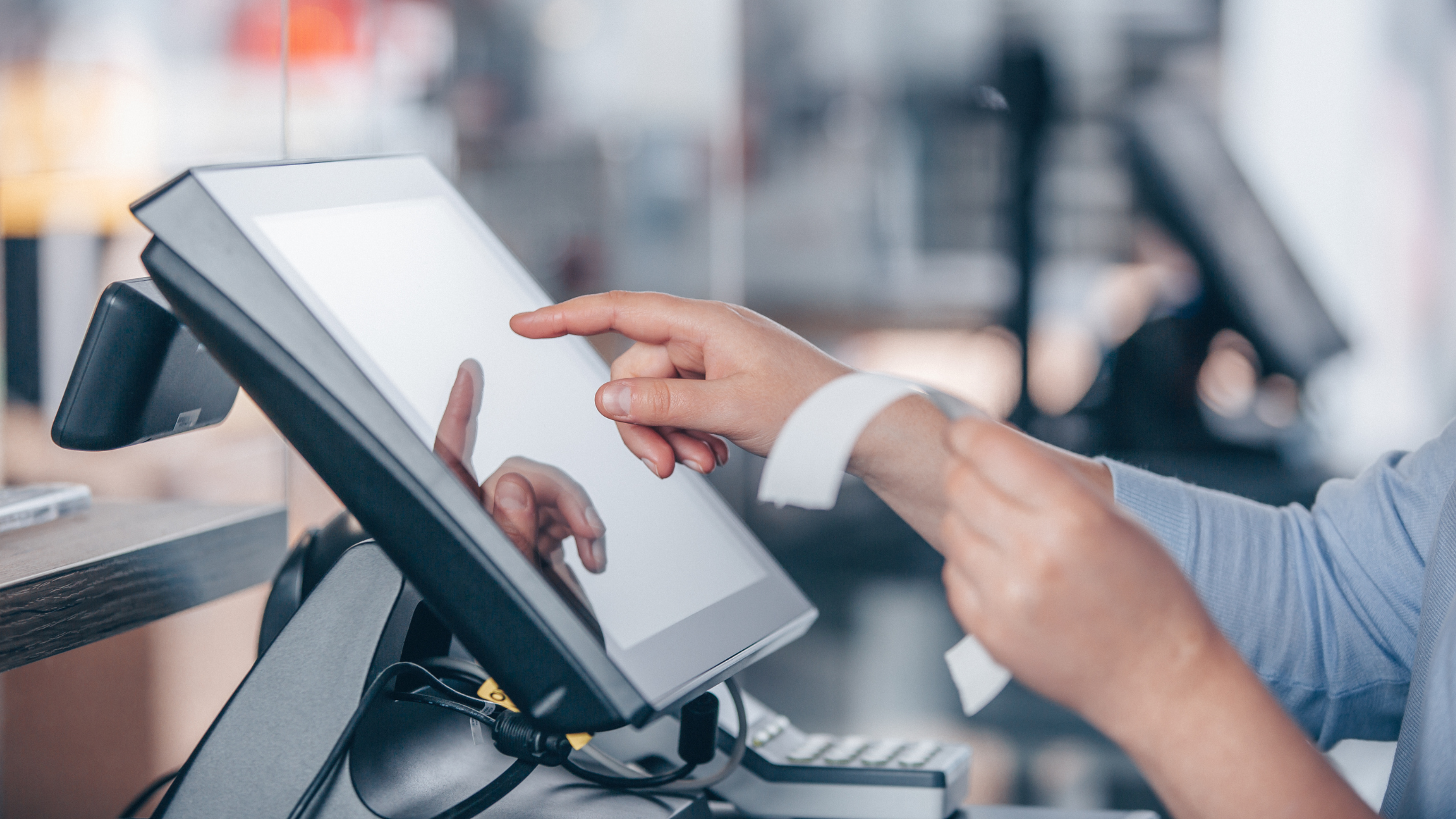No matter what they sell or how they attract customers to their stores, all retailers have one thing in common: They need the capabilities to process transactions at the retail point-of-sale (POS). But how do you choose a POS system right for your business?
What is a Retail Point-of-Sale System, and Why Do You Need One?
A retail point-of-sale system includes the equipment and technologies a retailer needs to process a transaction.
POS solutions have evolved from a simple cash register that records sales, accepts payments, and prints receipts to retail management systems that include POS software, POS hardware, and supporting services (e.g., cloud-based data storage and applications) to offer extended functionalities, such as inventory management, analytics, and loyalty programs.
A robust POS system helps retailers deliver a seamless customer experience, streamline workflows, increase operational efficiency, and stay competitive.
For example, it can integrate with customer relationship management (CRM) and loyalty program software to deliver a connected shopping experience and drive sales. It can perform sales tracking and analytics to provide data-driven insights. It can also automate back-office processes to save time and minimize costly errors.
9 Criteria for Selecting the Perfect Retail POS Solution for Your Business
Not all retail POS systems are created equal — with so many options available, how do you choose one that’s right for your business? Here are the key criteria to consider:
- Customer Experience
Today’s consumer demand a seamless customer experience and want to interact with brands online and offline. Map your customer touchpoints and design how you want people to experience your brand. Then, choose a POS solution that can support those interactions or integrate with software that can deliver the desired experiences. - Checkout Process
Most interactions between your customers and POS system occur at checkout. The solution should help you deliver a modern and streamlined customer journey by accepting different payment methods, providing self-checkout options, and integrating with eCommerce and mobile apps to connect online and offline activities. - Ease of Use
A well-designed, intuitive POS software user interface not only reduces staff training time and streamlines workflows. It also helps deliver a smooth shopping experience through frustration-free customer interactions at the point of sale (e.g., via self-service checkouts) to help you attract and retain more customers. - POS Peripherals
POS hardware includes more than the cashier’s touchscreen or self-checkout stations. For example, you may need a display to show ads for special offers or a menu board to support food service. Identify the POS hardware you need based on your product selection, marketing strategy, and customer journey to find a solution that covers all the bases. - Total Cost of Ownership
Besides the initial purchase of POS software and POS hardware, you must consider expenses associated with implementation and maintenance. For instance, an as-a-service model (such as DUMAC’s RaaS) allows you to turn CapEx into OpEx while eliminating the cost of hiring a large team of technicians to perform ongoing maintenance. - Inventory Management
Choose a POS solution that can support your current inventory management requirements and workflows so you don’t have to retool your processes. For example, when you partner with DUMAC, our team will take the time to understand your needs and configure the system to support your merchandising and supply chain requirements. - Data Security and Compliance
Your retail management system must comply with the latest Payment Card Industry Data Security Standards (PCI-DSS). Your POS solution should also support a data infrastructure that adheres to other data privacy laws (e.g., CCPA) if you collect customer data to inform your marketing strategy and run a loyalty program. - Integration with Back-Office Functions
Your POS systems should sync with your back-office operations, such as accounting software, CRM system, a scheduling application, loyalty program, direct store delivery (DSD), etc. For example, DUMAC’s RORC integrates seamlessly with various third-party solutions to help you automate workflows and minimize costly human errors. - Analytics Reporting
Choose a retail management system that offers customizable reporting with drill-downs and intelligent archiving to help you gain data insights for accurate decision-making. If you have multiple retail locations, your teams should be able to access these insights and decisions in real-time to coordinate activities and deliver a consistent customer experience.
A Service-First Retail POS Solution
Choosing the right POS software and hardware is just the beginning. To ensure the solution keeps on giving, use a vendor that takes a service-first approach with deep expertise in your market.
At DUMAC, we consult with our customers, design their POS systems, support implementation, and provide ongoing maintenance to create a custom, end-to-end solution that meets their evolving needs.
Learn more about RORC and get in touch to see how we can help you elevate and future-proof your grocery, supermarket, convenience, and fuel retail business.


Comments